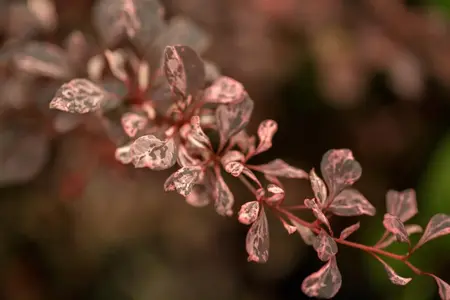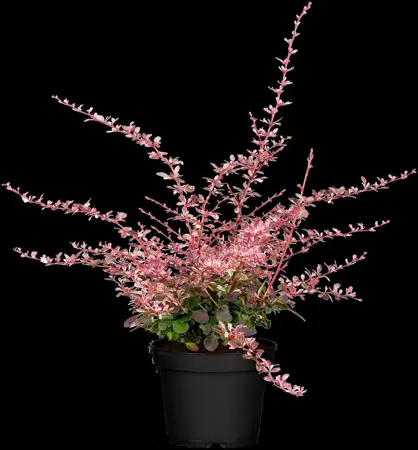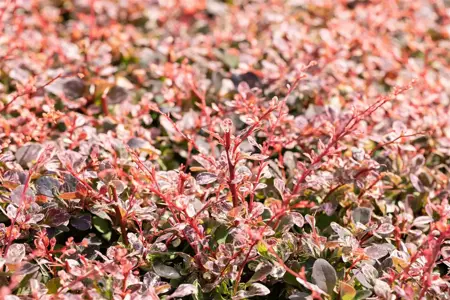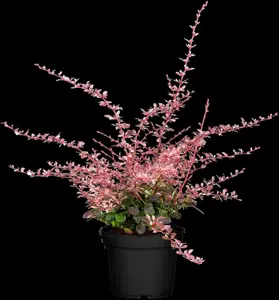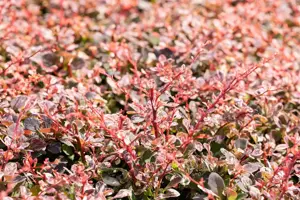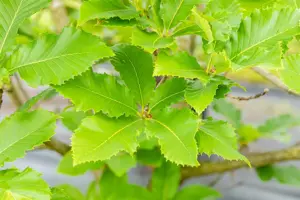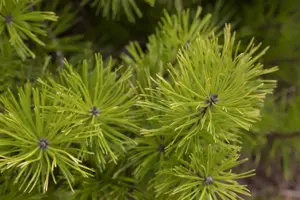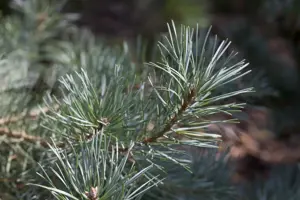Berberis thunb. 'Harlequin' - 2.5 Ltr pot
Berberis thunb. 'Harlequin' - 2.5 Ltr pot
Description
The Japanese barberry 'Harlequin' also has egg-shaped, pink-coloured, variegated leaves. In a sunny to semi-shady location with well-drained, humus-rich, acidic soil, it usually reaches a height of approx. 1 m and is approx. 1.2 m wide.
Bulletpoints
* the flowers are very popular with bees, bumblebees and hoverflies
* tolerates pruning
* easy to care for
* drought-resistant, resistant to urban climates, wind-resistant, deer-resistant
leaves
The deciduous leaves of the Japanese barberry 'Harlequin' are pink, variegated, ovate and alternate. They are about 3 - 4 cm in size.
Spread
China to Japan.
Frost hardiness
The Japanese barberry 'Harlequin' has good frost hardiness.
Growth
Japanese barberry 'Harlequin' is a dense, overhanging, branched and upright growing shrub or small bush. It usually reaches a height of 0.6 - 1 m and is approx. 0.8 - 1.2 m wide. It usually grows 10 - 15 cm per year.
Water
The plant has a medium water requirement.
Pruning
This plant is tolerant of pruning.
Location
Preferred location in a sunny to semi-shady position.
Soil
Berberis thunbergii 'Harlequin' thrives on all acidic, humus-rich and sufficiently moist soils.
Planting time
Container plants can be planted all year round, except when the soil is frozen and in summer heat (over 30°C).
Tasks
- Mulching: In the period from March to April.
Care
A slow-release fertiliser can be used in spring. This releases the nutrients slowly and continuously so that the plant is evenly supplied over a longer period of time.
Fruit
Adheres for a very long time.
Worth knowing
Plant or parts of the plant are poisonous.
Use
Ornamental shrub, bee pasture, hedge
Shoots
The shoots of Berberis thunbergii 'Harlequin' are spiny.
Root
Berberis thunbergii 'Harlequin' is a shallow-rooting plant and, depending on the soil, forms densely branched roots.
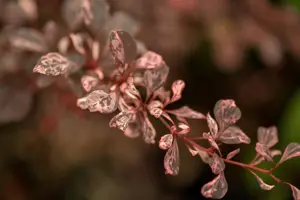
- Article number288
-
EAN codeBETHARLE-2C25
- Latin nameBerberis thunb. 'Harlequin'
- catalogLandscape shop

